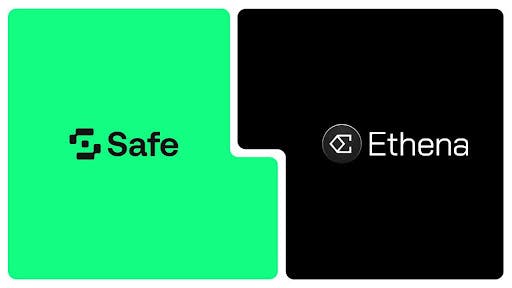Fresh data from Speedtest Intelligence by Ookla Research, for the first half of 2025, shows that MTN Group dominates the continent’s mobile speed rankings, while Vodacom has emerged as the clear frontrunner in 5G performance, reflecting contrasting network strategies among Africa’s biggest telecom companies.
Across 19 operators from MTN, Vodacom, Orange, and Airtel, the median download speeds ranged from 14.8 Mbps for Vodacom (DRC) to 74.76 Mbps for MTN South Africa, the fastest across sub-Saharan Africa. The performance cements MTN’s position as the region’s speed leader, driven by heavy investment in 4G and 5G rollout, and network optimisation across key markets like Nigeria, Uganda, and South Africa.
MTN South Africa recorded the highest median download and upload speeds for all technologies, 74.76 Mbps and 13.65 Mbps, respectively, placing it well ahead of regional rivals. Botswana followed as the second-strongest market, powered by Mascom, MTN’s joint venture, which achieved 65.34 Mbps in download speed and 18.35 Mbps in upload speed. Orange Botswana came close behind at 56 Mbps.
The group’s strong performance extended across multiple regions. MTN Uganda and MTN Nigeria led in median download and upload speeds in East and West Africa, respectively. Notably, MTN operations in Uganda, Nigeria, and Botswana were the only ones in the Speedtest ranking to achieve 5G median download speeds above 200 Mbps, outpacing other major players like Vodacom, Orange, and Airtel.
Vodacom’s 5G strategy pays off in South Africa
While MTN leads overall in mobile performance, Vodacom has taken the 5G crown in South Africa, recording a median 5G download speed of 174.9 Mbps and an upload speed of 11.86 Mbps — the fastest in the country. Vodacom’s edge is attributed to its use of a wider spectrum bandwidth and a network densification strategy focused on urban centers.
Across all technologies, Vodacom ranked fourth among surveyed operators, with median download and upload speeds of 52.31 Mbps and 7.88 Mbps, respectively. The operator’s superior 5G results highlight a growing divergence in performance across legacy and next-generation networks, as operators pursue different rollout strategies to manage costs and spectrum efficiency.
Regional insights: South Africa and Botswana set the pace
Southern Africa continues to lead sub-Saharan Africa in mobile broadband speeds. The region’s operators, led by MTN South Africa, Mascom, Orange Botswana, and Vodacom South Africa, posted median download speeds above 50 Mbps.
By contrast, West and Central Africa lag. In Côte d’Ivoire, where 5G rollout remains limited, Orange secured the top spot with a median download speed of 35.25 Mbps, while MTN Côte d’Ivoire trailed below 25 Mbps. In the Democratic Republic of Congo (DRC), where 5G services are yet to be widely commercialised, Orange outperformed rivals in download speed, while Airtel led in upload speed. However, all operators in the DRC ranked at the bottom of the continent’s mobile performance list, with Vodacom posting the lowest median download speed overall at 14.8 Mbps.
Meanwhile, Botswana has quietly become one of Africa’s 5G pioneers, with Mascom and Orange delivering strong results. The country’s investments in 2021—including the launch of the Digital Delta Data Centre and the $7.5 million SmartBots Village, along with expanded spectrum access and digital infrastructure—have helped create one of the most advanced mobile broadband environments in Africa..
East Africa: Safaricom surges ahead in Kenya
In East Africa, Safaricom remains the undisputed leader in Kenya’s mobile speed race. The operator’s median download speed of 43 Mbps was 2.4 times faster than Airtel’s, representing the largest performance gap between two major rivals in any African market. Safaricom also delivered a median upload speed of 15.11 Mbps, reinforcing its dominance.
The difference was even more pronounced in 5G performance, where Safaricom’s download and upload speeds were roughly three times those of Airtel Kenya. In Tanzania, the dynamics flipped: Airtel outperformed Vodacom in 5G speeds, while in Uganda, MTN’s network remained far ahead of Airtel’s.
Nigeria: MTN consolidates dominance despite headwinds
Nigeria, Africa’s largest mobile market with over 170 million active subscribers, continues to be a key battleground for operators. MTN and Airtel control over 86% of the market, but their performance metrics diverge sharply.
According to Speedtest data, MTN Nigeria recorded a 5G median download speed of 226.6 Mbps, compared to 182.6 Mbps for Airtel, while maintaining slightly higher 4G availability (91.2% versus Airtel’s 89.9%). MTN’s median download speed far exceeded Airtel’s 17.44 Mbps, positioning MTN as the fastest operator in West Africa.
These results are particularly notable given Nigeria’s persistent challenges — from currency devaluation and inflation to fuel shortages and infrastructure vandalism. Despite the economic headwinds, MTN has committed US$3.5 billion in network investments between 2023 and 2028, including an agreement with Airtel to share network infrastructure to improve efficiency and coverage.
The 5G divide and the road ahead
While 5G rollout expands across parts of Southern and East Africa, coverage remains sparse elsewhere. Speedtest data suggests that operators in countries like Nigeria, Botswana, and Uganda are reaping the benefits of early deployment, while markets such as Côte d’Ivoire and the DRC are still waiting for commercial launches.
The impact of 5G on network performance is clear. Operators with wider coverage and higher network availability consistently deliver better speeds. In contrast, limited 5G access and reliance on legacy networks continue to hold back user experience in some countries.
Africa’s telecom growth story, however, remains compelling. The continent’s young population, rapid smartphone adoption, and rising demand for digital services make it one of the most dynamic telecom markets globally. But sustaining high-speed connectivity will require addressing critical challenges: spectrum availability, high energy costs, regulatory complexity, and the need for broader infrastructure sharing.










